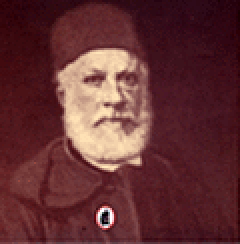|
Nahda
The Nahda ( ar, النهضة, translit=an-nahḍa, meaning "the Awakening"), also referred to as the Arab Awakening or Enlightenment, was a cultural movement that flourished in Arabic-speaking regions of the Ottoman Empire, notably in Egypt, Lebanon and Syria, during the second half of the 19th century and the early 20th century. In traditional scholarship, the Nahda is seen as connected to the cultural shock brought on by Napoleon's invasion of Egypt in 1798, and the reformist drive of subsequent rulers such as Muhammad Ali of Egypt. However, more recent scholarship has shown the Nahda's cultural reform program to have been as "autogenetic" as it was Western-inspired, having been linked to the Tanzimat—the period of reform within the Ottoman Empire which brought a constitutional order to Ottoman politics and engendered a new political class—as well as the later Young Turk Revolution, allowing proliferation of the press and other publications and internal changes in polit ... [...More Info...] [...Related Items...] OR: [Wikipedia] [Google] [Baidu] |
Butrus Al-Bustani
Butrus al-Bustani ( ar, بطرس البستاني, ; 1819–1883) was a writer and scholar from present day Lebanon. He was a major figure in the Nahda, which began in Egypt in the late 19th century and spread to the Middle East. He is considered to be the first Syrian nationalist, due to his publication of ''Nafir Suria'' which began following the 1860 Mount Lebanon civil war. In 1870, he founded '' Al-Jinan'', the first important example of the kind of literary and scientific periodicals which began to appear in the 1870s in Arabic alongside the independent political newspapers. Life Al-Bustani was born to a Lebanese Maronite Christian family in the village of Dibbiye in the Chouf region, in January 1819. He received primary education in the village school, where he attracted the attention of his teacher, Father Mikhail al-Bustani, because of his keen intelligence that he showed brilliantly. The latter recommended him to the Bishop of Sidon and Beiteddine, Abdullah al-B ... [...More Info...] [...Related Items...] OR: [Wikipedia] [Google] [Baidu] |
